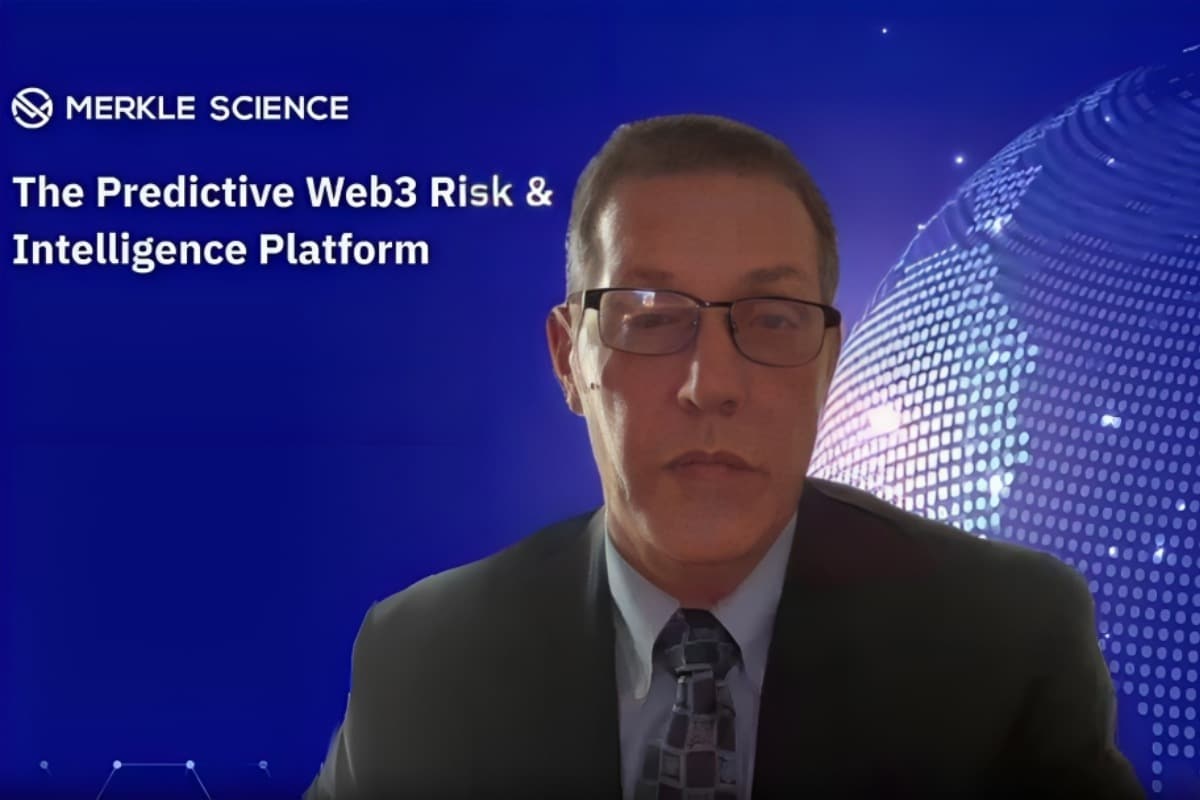Public-Private Partnerships Necessary in Investigating Crypto Crimes: Former IRS Agent and Lead Investigator at Merkle Science
Publikováno: 15.12.2023
Richard Reinhardt. Image: LinkedIn / Merkle Science In an exclusive interview with CryptoNews, former IRS agent Richard Reinhardt, now serving as the lead investigator at Merkle Science, talked about growing challenges in investigating crypto-related crimes and the need for public-private partnerships. With over two decades of experience in investigating money laundering cases at IRS, Reinhardt, […]
The post Public-Private Partnerships Necessary in Investigating Crypto Crimes: Former IRS Agent and Lead Investigator at Merkle Science appeared first on Cryptonews.

In an exclusive interview with CryptoNews, former IRS agent Richard Reinhardt, now serving as the lead investigator at Merkle Science, talked about growing challenges in investigating crypto-related crimes and the need for public-private partnerships.
With over two decades of experience in investigating money laundering cases at IRS, Reinhardt, shed light on the challenges faced by investigators, the evolving nature of crypto-related frauds, and the crucial need for public-private partnerships to combat illicit activities in the decentralized world. Highlighting the innovative tactics used by criminals, he emphasized the necessity for investigators to stay ahead in the game.
Reinhardt shared his experiences from the early days of crypto investigations, tracing the shift from traditional money laundering to the rise of crypto-related scams. He also headed the investigation into one of the biggest crypto ponzi schemes – OneCoin. Additionally, he also investigated the first ever NFT rug pull and several other crypto-related crimes.
Peer-to-Peer Transactions and Regulatory Gaps
Discussing the global scenario, Reinhardt draws attention to the challenges faced by law enforcement agencies globally. He elaborated on the surge in peer-to-peer transactions and the regulatory gaps that allow these activities to thrive. He also touched upon the difficulties in enforcing regulations on peer-to-peer exchanges and the covert techniques employed to identify and penetrate illicit actors. Talking about investigating P2P related scams, Rich said:
“We use a lot of covert techniques to identify those people and then penetrate them. You could say it is the Wild West because there’s a lot of anonymity there. Where a lot of people sending cash by mail, meeting in person. That’s about the only way because it’s not showing up anywhere and that’s a big void.”
With insights gained from investigating a range of crypto frauds, including peer-to-peer money laundering, NFT frauds, and pump-and-dump schemes, Reinhardt talked about the intricacies of tracking transactions on the blockchain.
He discussed the limitations faced by law enforcement and the increasing reliance on companies like Merkle Science for their expertise in tracing crypto transactions.
Reinhardt also highlighted the use of privacy-centric coins like Monero and the challenges they pose to investigators. He sheds light on the decentralized finance (DeFi) space, identifying it as the current hotspot for criminal activities due to the complexities involved in tracing transactions.
Talking about the difference between crypto money laundering and traditional money laundering, the former IRS agent said:
“Historically, if you were investigating a Hawala network or a drug trafficking organization using nominee accounts or black market peso exchanges, you can pretty much become an expert after like one or two cases, right? Everything’s pretty much going to stay the same. Now with crypto, five years ago it was Bitcoin, we learned how to trace Bitcoin, then they switched over to Ethereum based products. We get our handle on the Etherum based products and we trace those. Now we’re going to Defi exchanges. So now we’re using mixers, swapping services, bridges, and it just makes it that much more difficult to follow along. So you have to constantly stay up to date on what’s going to be the next method.”
Future of Crypto Crimes and Need for Public-Private Partnerships
Reinhardt further emphasized the need for collaborative efforts between law enforcement agencies and private blockchain analytics firms. He discussed the role of companies like Merkle Science in providing essential tools and expertise to investigators, bridging the gap between the ever-expanding crypto industry and regulatory bodies. Richard concluded:
“It just seems like it’s always evolving into something new every six months and then you got to sharpen your skills. You can’t sit back anymore and wait for the next money launderer to come by. You got to figure out what the next money launderer is going to do. You’ll definitely see an increase in regulations in the USA and overseas. And I think you’ll continue to see public private sector relationships with law enforcement and companies like us and other intelligence based companies.”
The post Public-Private Partnerships Necessary in Investigating Crypto Crimes: Former IRS Agent and Lead Investigator at Merkle Science appeared first on Cryptonews.